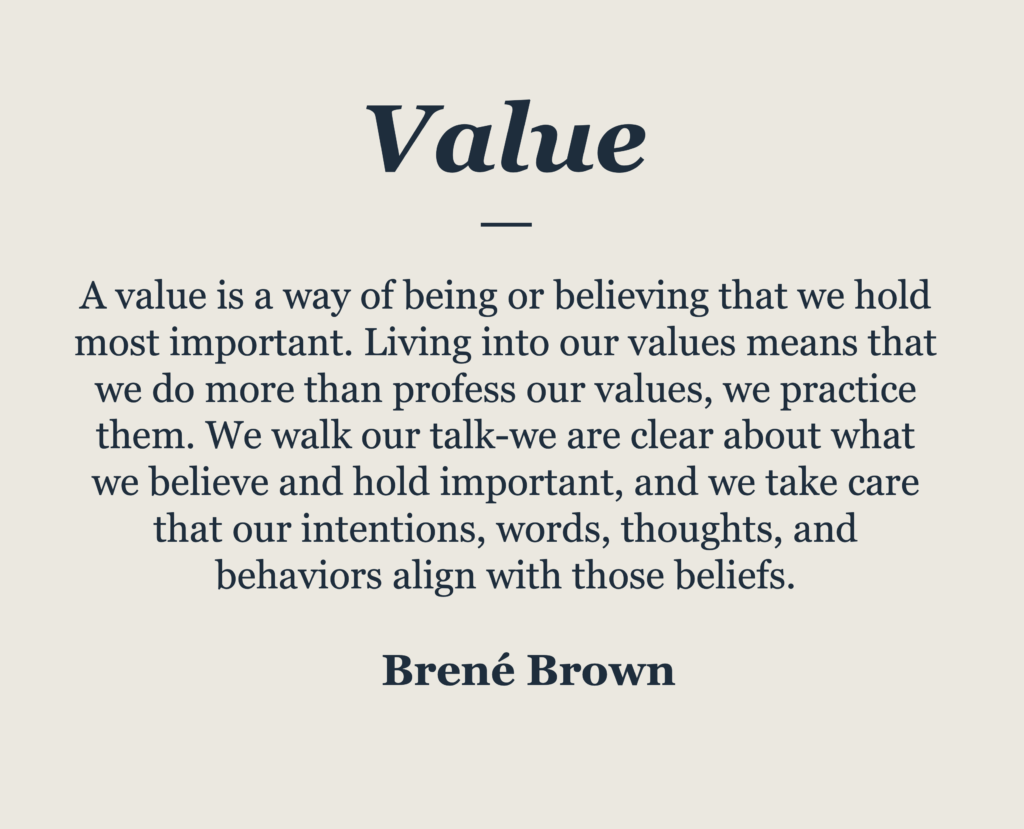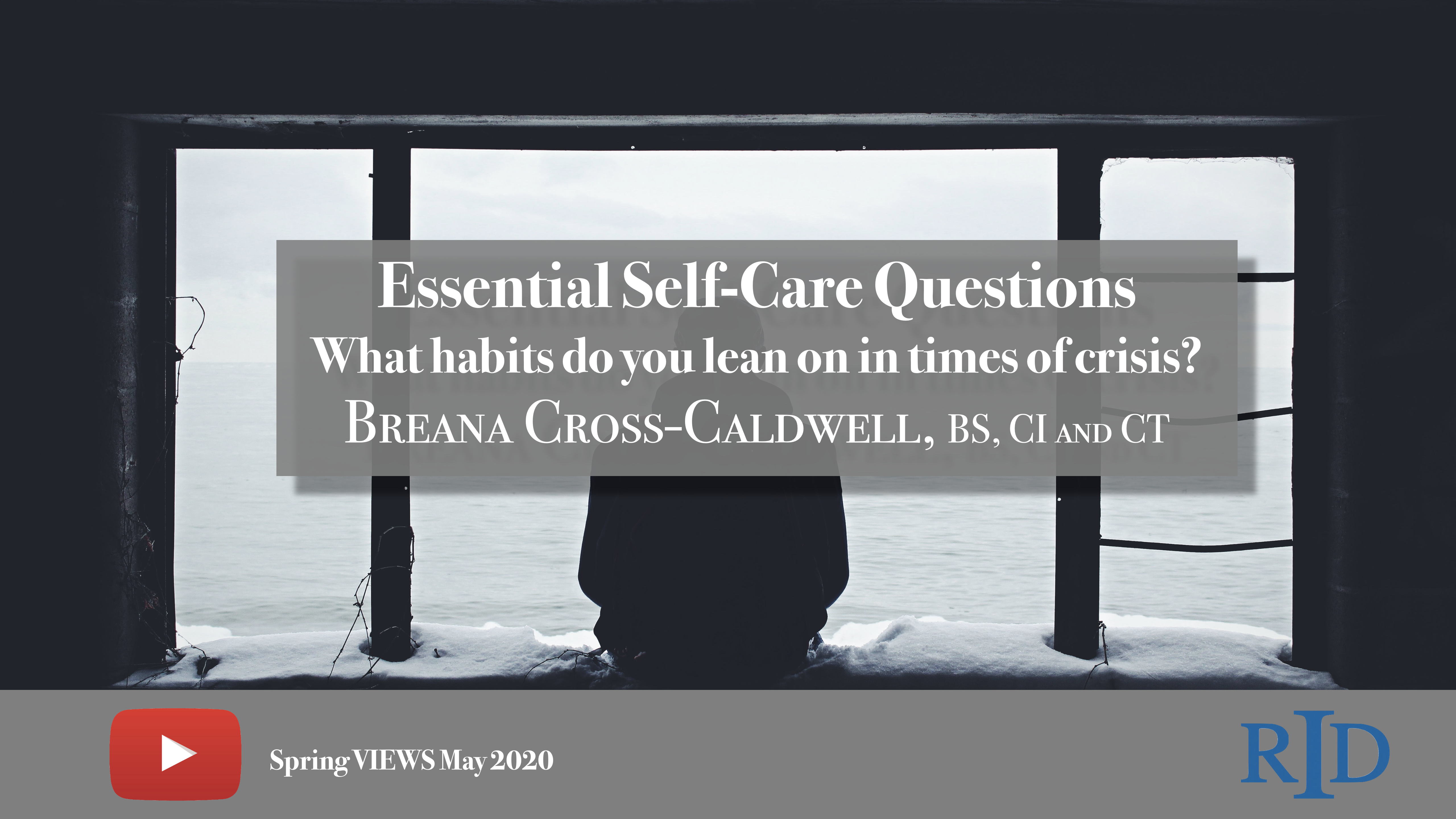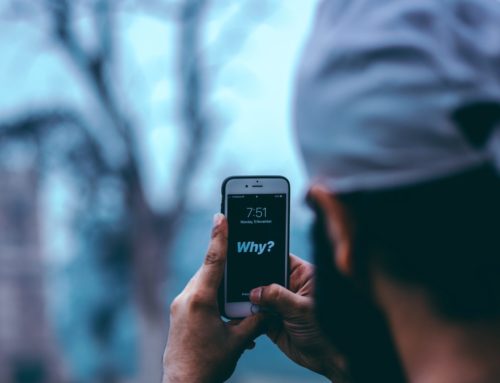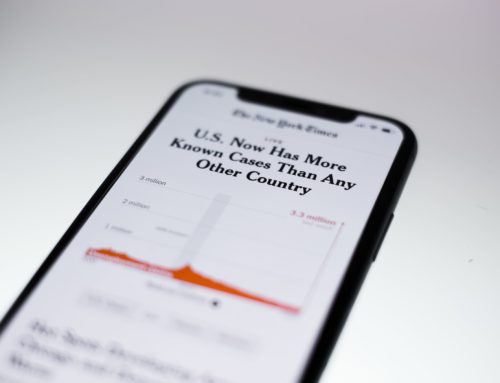What habits do you lean on in times of crisis?
Breana Cross-Caldwell, BS, CI and CT


In the case of learning to drive, you are made painfully aware of every small movement or amount of pressure you apply, and just how many buttons and levers there are in that vehicle! Over time and with practice these skills become habits and soon you are arriving home, without really knowing how you got there, on autopilot!
In normal everyday life when not in times of crisis, we can often get away with being on autopilot. Our default habits carry us through, there’s not too much stress or pressure to call our attention to any one particular area of life, and all seems to flow along.
Then there are times like these. As I’m writing this, it is mid-March, and we are just seeing the first effects of COVID-19 in the US. When our country is in a state of emergency, we begin to test the strength of our habits to see if they hold us steady or if they give way under pressure.
How are your habits holding up?
Take time to reflect on your habits and whether or not they’re serving you. Grab a pen and paper, set a timer for five or ten minutes, and give yourself some space to explore. There are no right or wrong answers here, only information that can better lead you into alignment with your core values.
A word about emotions
Our emotions can vary widely from day-to-day and even moment-to-moment, especially when we’re under stress. As you reflect on the following questions, consider the general structures in your life and reactions you’ve been having, rather than focusing on the very human and ever-changing flow of emotions you’ve probably felt. These emotions are also important, and I urge you to spend time with them as well – using processes to support you like the ones outlined here (Cross-Caldwell, 2019).
Self-Reflection
-
What resources and means of support have been helping you cope with stress and uncertainty? Make a list. These may be activities like exercise, reading, watching shows, meditating, drinking wine, petting your dog, or journaling, or they could be people like your best friend, co-worker, therapist or partner.
-
For each thing on your list, jot down how you feel afterward. For exercise, I may note that afterward I feel relaxed and proud of myself. After watching shows I may feel entertained and sleepy. After drinking wine I may feel buzzed and relaxed. Try not to judge any response, just note each as simply and honestly as possible.
Values
Brené Brown defines a value as “a way of being or believing that we hold most important” (Brown, 2018, p. 186). When we get clear on what’s most important to  us, we can assess our behaviors and coping strategies to see if they are in alignment. The more aligned our habits and values are, the less work it takes to stay in integrity and health when times get tough.
us, we can assess our behaviors and coping strategies to see if they are in alignment. The more aligned our habits and values are, the less work it takes to stay in integrity and health when times get tough.
Using a list like this one from Brené for reference, choose the values that are most important to you – that you want to live your life by or base your decisions on – words such as courage, faith, compassion, and knowledge.
Building healthy habits
Once you have identified your core values, “the beliefs that are most important and dear to you, that help you find your way in the dark, that fill you with a feeling of purpose,” Brené says, “take the time to translate [them] from ideals to behaviors” (Brown, 2018).
What day-to-day habits make it easier for you to live out your values? List the few that are the most impactful.

For example, if I value courage, then the habit of deep breathing while stressed will help me to make courageous and grounded decisions even when I’m scared.
Other daily habits you might consider are: physical movement, getting enough restful sleep, eating nourishing food, attending to emotions, or drinking enough water. A list of healthy habits can be found here (Kennedy, 2019).
Lastly, circle back and compare your values and the habits that support them with your initial list of current coping strategies. Again, be careful not to judge yourself, but to take this in as helpful information.
Are your current coping strategies aligned with your values?
Do you notice any that you’d like to replace with values-serving habits? Make a note of them.
Putting healthy habits on autopilot
Making these value-serving habits automatic – just like learning to drive a car – takes time and practice. You can help yourself along by following BJ Fogg’s three steps for habit-creation (Hall, 2018).
-
Make the new habit tiny – less than thirty seconds.
-
Anchor it to an existing habit.
-
Celebrate each time you complete it.
Practicing healthy habits in conjunction with identifying core values can create a positive feedback loop where your values reinforce your healthy habits and your habits reinforce your values. You create strong neural pathways for automatic behavior, which in turn frees up your mind for creative problem-solving during times of crisis. And who doesn’t need access to more creative problem-solving during times of crisis? I know I sure do.
I hope this supports you in taking good care of yourself during such a stressful time. Even the tiniest bits of conscious care you’re able to give yourself during this time can be tremendously helpful.
Resources
Brown, Brené. (2019, Feb). List of Values. Retrieved from https://daretolead.brenebrown.com/wp-content/uploads/2019/02/Values.pdf
Brown, Brené. (2018). Dare to Lead. New York: Random House.
Cross-Caldwell, Breana. (2019, November). Self Care: Thriving in Times of Uncertainty. RID VIEWS, Fall 2019. https://rid.org/self-care-thriving-uncertainty/
Hall, Breana. (2018, May). The Daily Work of a Reflective Practice. RID VIEWS, Spring 2018. https://issuu.com/ridviews/docs/may2018_springviews/54
Kennedy, Tracy. (2019, Dec 23). 30 Self-Care Habits for a Strong and Healthy Mindy, Body, and Spirit. Lifehack blog: https://www.lifehack.org/834747/self-care
About the Author:
 Breana Cross-Caldwell, BS, CI and CT, holds her CI/CT from RID, B.S. in Interpretation from Western Oregon University and is a Certified Life Coach. She has led thousands of interpreters in preventing burnout and finding the passion again in their lives through developing habits of self-care. You can find her on Instagram @brighterfocus.
Breana Cross-Caldwell, BS, CI and CT, holds her CI/CT from RID, B.S. in Interpretation from Western Oregon University and is a Certified Life Coach. She has led thousands of interpreters in preventing burnout and finding the passion again in their lives through developing habits of self-care. You can find her on Instagram @brighterfocus.








Leave A Comment
You must be logged in to post a comment.